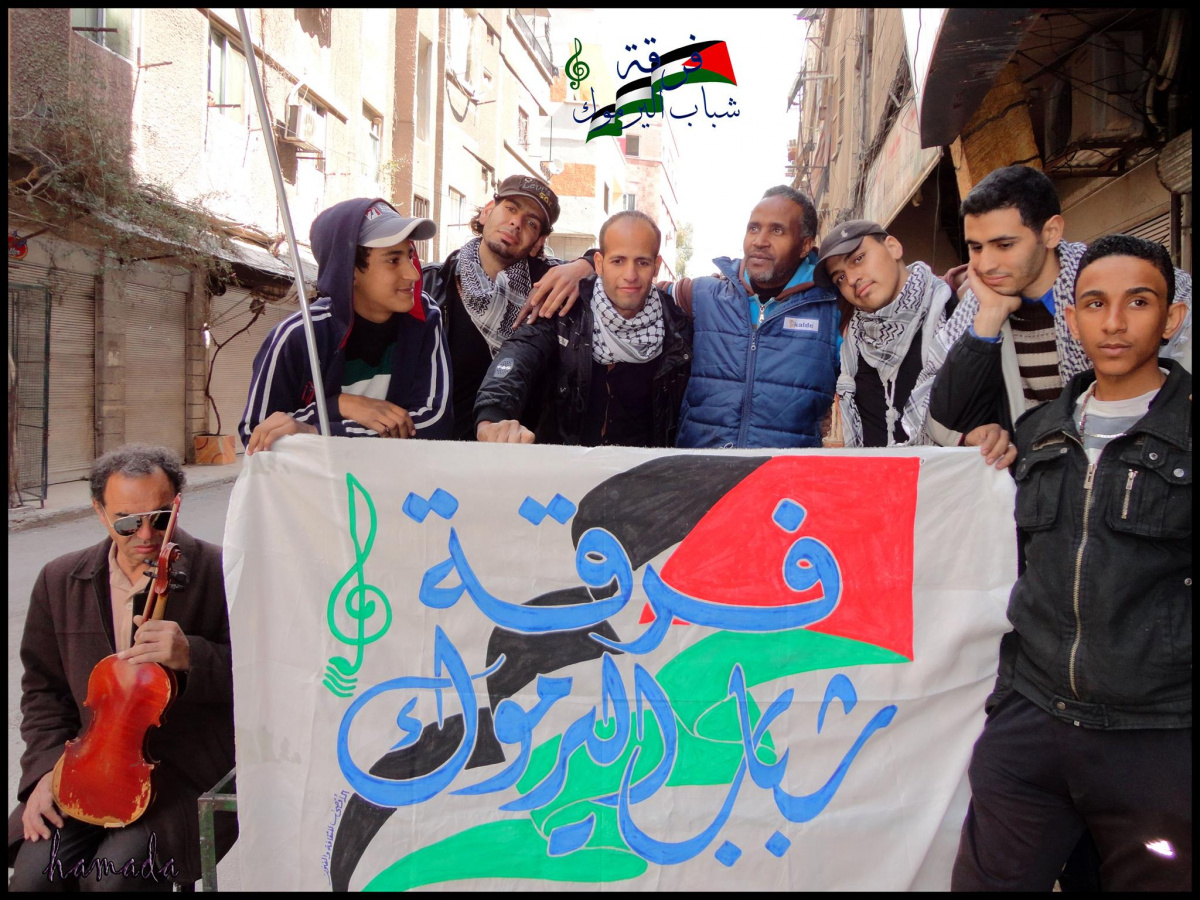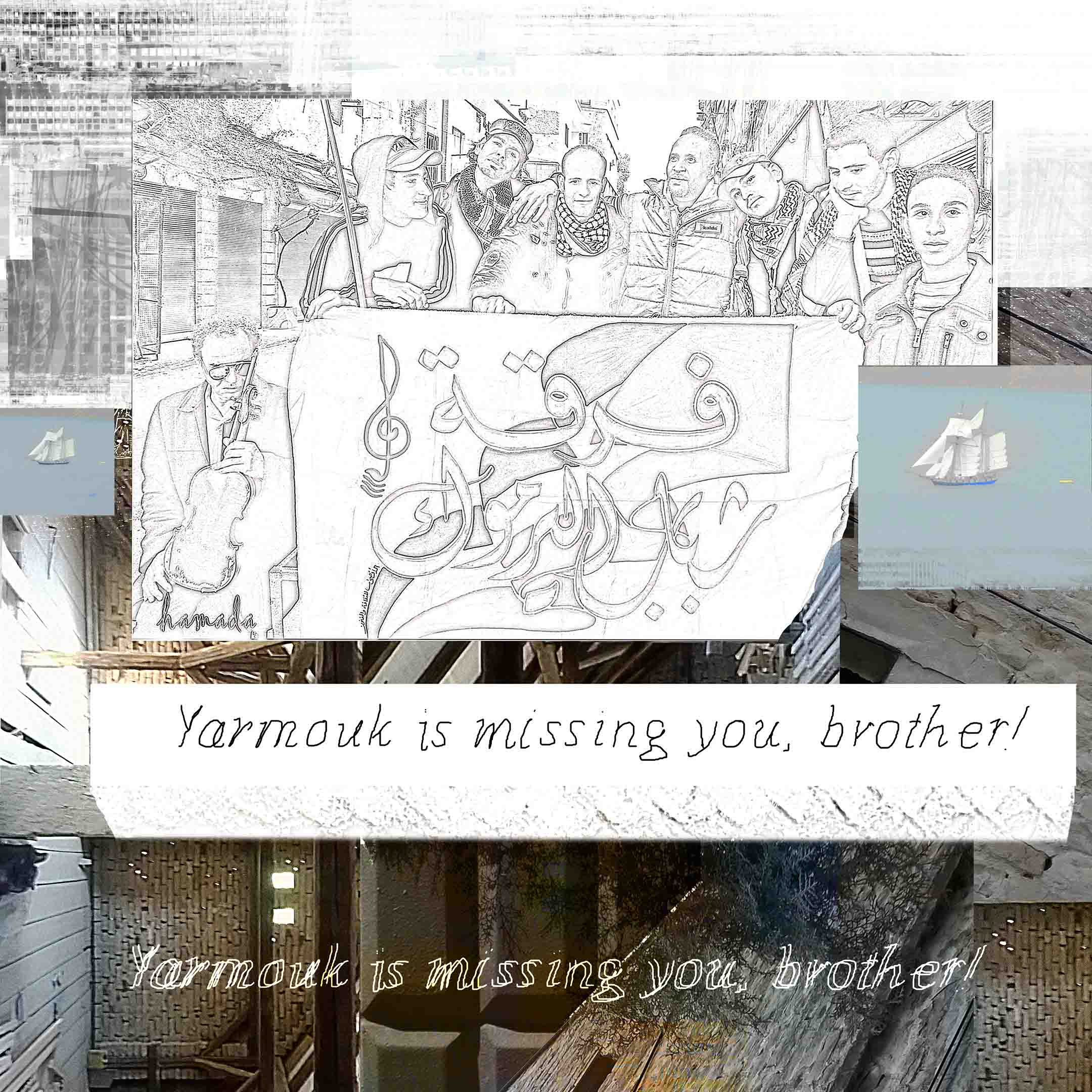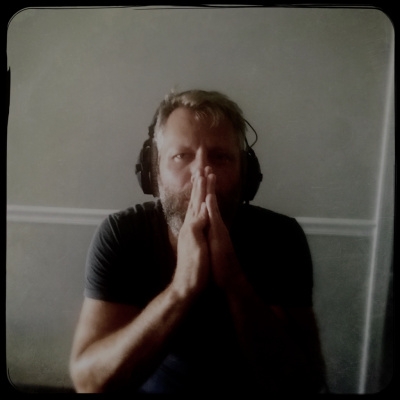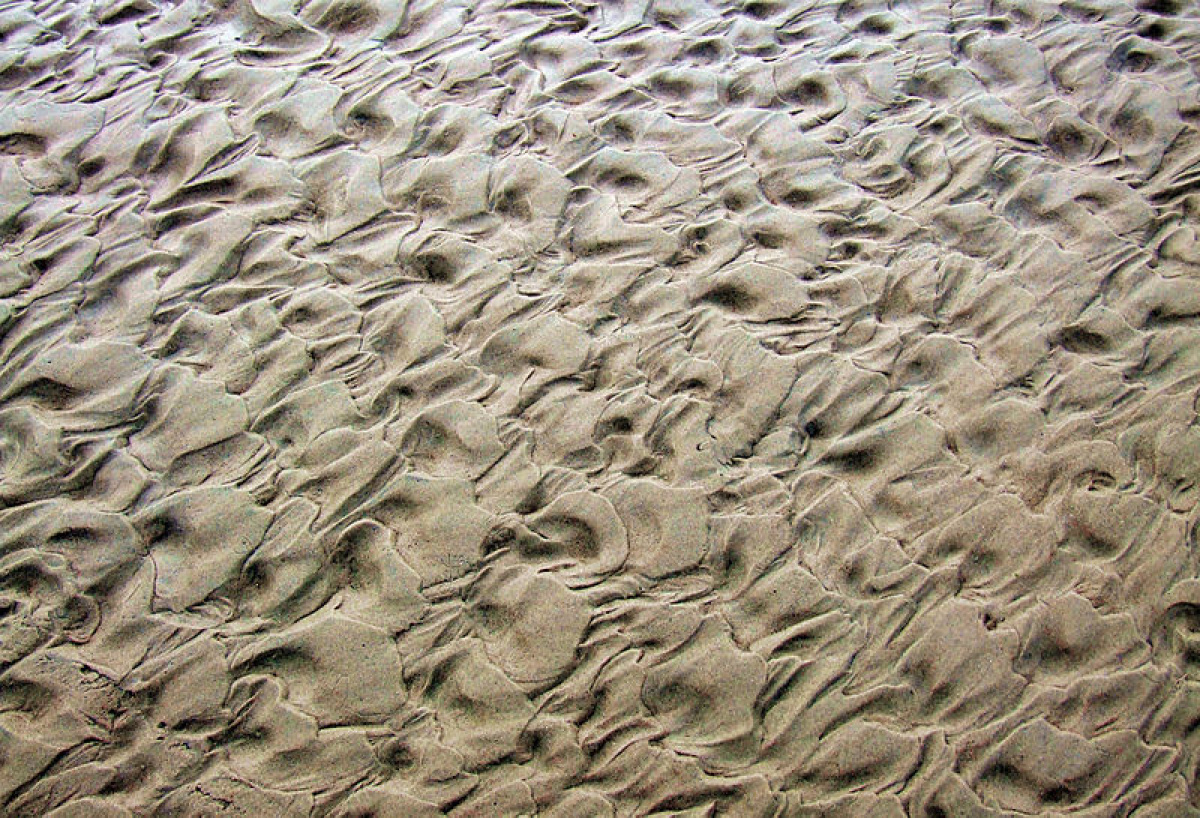
«Yarmouk Is Missing You, Brother»
This is the story of a Palestinian song. A song that originated in Damascus, more exactly in the district of Yarmouk, a part of the city which is populated by Palestinians. Between 2012 and 2018, Yarmouk was beseiged and the song expressed the feelings and wishes of the Palestinians in this specific situation. The song was performed by the pianist Aeham Ahmad on the street among the ruins, and it was used as a «tool of Palestinian propaganda» in worldwide media shortly after. In this article, the author examines, based on an interview and music analysis, how the song’s meaning has changed since Aeham Ahamd has been performing in Germany as a refugee.
This video shows Aeham Ahmad on the streets of Yarmouk, the Palestinian district of Damascus and the secret «capital of Palestinian refugees».1 The text of the song was written by Rapper Mahmoud Tamim at a time when the Syrian regime had imprisoned about 30,000 citizens of Yarmouk, and after the rest of the former 200,000 inhabitants had fled to places outside the district (see the report of Palestinans of Syria Network from January 17, 2014). This is the refrain and the first verse of Tamim’s song:2
|
Oh, my beloved but expelled people how long have you been drifting around. Come back beloved, come back! We are missing you so long. |
Ach mein liebes vertriebenes Volk, treibst dich schon so lang rum. Kommt ihr Lieben, kommt zurück! Ihr fehlt uns doch schon viel zu lang! |
يا شعبي الغالي يا مهجر ... بيكفي برا تتمرمر يا الله عودوا يا احباب ... بيكفينا طال الغياب |
|
Those who stay in Qudsaya, Yarmouk is missing you, Brother |
Du, der du in Qudsaya bist, Yarmouk vermisst dich Brude |
يا اللي قاعد بقدسيا ... اليرموك اشتاق لك يا خيا |
Whereas Mahmoud Tamim addressed members of his own family, Aeham Ahmad «globalized» the song and addressed all «brothers of Yarmouk» who have left the district:
From the Ruins in Syria to the German TV
Aeham Ahmad sang this and more than one hundred songs with a small group of friends on the streets of Yarmouk amidst its ruins. A friend took videos, opened a Facebook account,3 and these videos spread over the Arab world and also reached the West. The videos were produced to show the world the situation of the starved people of Yarmouk.
The musical habitus of the Yarmouk-song is rather happy, and so easy that small kids could sing it (see the video above from July 22, 2015). Aeham says that he wanted to spread hope and the will to survive. After one of Assad’s snipers missed Aeham and hit a little singing girl, Aeham stopped performing on the street. Shortly after, in May 2015, ISIS took over Yarmouk and burned up Aeham’s piano. Aeham then fled via the «Balkan Route» to Germany, where he arrived in October 2015.
Aeham’s flight was documented by the German TV-station ZDF, thus, when Aeham arrived in Germany, he was immediately «engaged» (or «commercialized»?) by the pro-refugee movement. In this documentation, one can see how Aeham sings the Yarmouk-song together with a group of refugee children, who all seem to know the song very well:
In 2019, Aeham’s schedule of concerts, recitals, and workshops became so packed that Aeham told me it was becoming «too much» for him. Meanwhile in autumn 2020, the COVID-19 pandemic solved this problem: All of his performances were canceled.
The Meaning of a Song Changes
But what happened to the Yarmouk-song in the diaspora? On May 14, 2018, Assad’s troops freed Yarmouk from ISIS after they had destroyed 60 to 80 percent of the buildings. Several reports from 2018 said that no Palestinians wanted to come back. On October 15, 2020, Al-Monitor from Ramallah wrote that some Palestinians now had started to return to Yarmouk due to some restrictive regulations.
In October 2019, I asked Aeham if the actual situation of Yarmouk has any significance to the meaning of the Yarmouk-song. Aeham answered that the «globalization» of the song had started in 2013 and continues today. Aeham emphasizes that the Palestinian people are refugees wherever they are – in Yarmouk, in Syria, in the Near East, or in Europe. Thus, the song does not mean any more «brother, come back», as there is no geographically fixed homeland to return to. Rather it says to remain a Palestinian wherever you are.
But this attitude is not free from sorrow, despair, and anger. Although the diverse studio-recordings of the Yarmouk-song, which Aeham produced since 2015, are rather «happy» and untroubled, one recognizes when listening to Aeham’s live performances in 2019 that «Yarmouk is missing you, Brother» still has another «unconscious» meaning. This was my impression when I heard Aeham playing in one of these typical «concerts for refugees» in the Werkstatt der Kulturen in Berlin on October 2, 2019.
One can easily feel and even see how desperate Aeham is when he cries with and without words, when he hits the interior of the piano, when he cites Mozart’s «alla turca» (01:17) in a fabulous rush of notes, when he changes so rapidly from a forceful forte to a gentle piano and back. I promise, one day, Yarmouk will call again: «Aeham Ahmad, we are missing you, Brother!»
- 1. Following the arguments of Aeham Ahmad in the author’s interview on October 3, 2019, in Berlin.
- 2. Complete text and music sheet in Stroh 2020a.
- 3. The photo at the top of the article is taken from this Facebook Account, which was opened in February 2014. The picture shows Aeham’s first group together with his blind father, playing the violin. This photo was the «logo» of the «Yarmouk» movement. The account is still open, but not active anymore.
List of References
Biography
Published on May 03, 2021
Last updated on April 11, 2024
Topics
Does the global appropriation of kuduro exploit or reshape the identity of Angolans? How are «local» music genres like guayla sustained outside of Eritrea?
What happens, when artists move from one to another country? For example, when an Arab artist replaces the big tractors in her the village with big jeeps of the West.
How does Syrian death metal sound in the midst of the civil war? Where is the border between political aesthetization and inappropriate exploitation of death?
Snap




